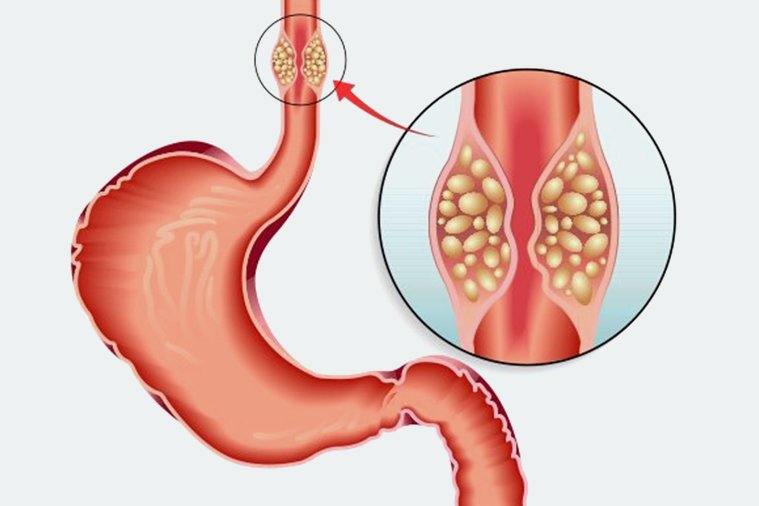Dr. Shilpa Gandhi | Leading Consultant Minimally Invasive Thoracic Surgeon In Nagpur
Meet Our Doctor
Dr. Shilpa Gandhi
MBBS, DNB General Surgery DNB Thoracic Surgery
Dr. Shilpa Gandhi is a trusted and experienced healthcare professional known for her compassionate care and expertise. Committed to delivering personalized treatments and improving patient well-being.


Esophageal Cancer Surgery
Esophageal cancer surgery is a critical treatment option for individuals diagnosed with esophageal cancer, particularly in its early stages. The esophagus, a vital part of the digestive system, plays a key role in swallowing or transporting food to the stomach. When cancer develops in the esophagus, timely surgical intervention can significantly improve survival rates and quality of life. Here’s everything you need to know about esophageal cancer surgery, its types, and how it can help patients take a step toward recovery.
Esophageal cancer is a challenging diagnosis, but advancements in surgical techniques offer hope for improved outcomes. Esophageal cancer surgery is one of the most effective ways to treat this condition, especially when caught in the early stages. By removing cancerous tissue and restoring esophageal function, this surgery can improve survival rates and quality of life for patients. Here’s an in-depth guide to esophageal cancer surgery, its benefits, and why it’s a critical part of cancer care.
What Is Esophageal Cancer Surgery?
Esophageal cancer surgery involves the removal of cancerous tissue from the esophagus and, in some cases, nearby lymph nodes and affected areas. The goal is to eliminate the tumor, prevent its spread, and restore normal swallowing function as much as possible.
Surgery is often combined with other treatments, such as chemotherapy and radiation therapy, depending on the stage of cancer and the patient’s overall health.
Why Is Esophageal Cancer Surgery Important?
Surgery is a vital component of esophageal cancer treatment for several reasons:
- Cancer Removal: It eliminates the primary tumor, reducing the risk of cancer spreading.
- Symptom Relief: Surgery can alleviate symptoms like difficulty swallowing, chest pain, and regurgitation.
- Improved Survival: For early-stage esophageal cancer, surgery offers the best chance of a cure.
- Better Quality of Life: Post-surgery, patients can often regain the ability to eat and drink more comfortably.
Types of Esophageal Cancer Surgery
The type of surgery recommended depends on the cancer’s location, size, and stage, as well as the patient’s overall health. Common types include:
Esophagectomy
- The most common procedure for esophageal cancer.
- Involves the removal of part and all of the esophagus.
- The stomach is reshaped and reconnected to the remaining esophagus or brought up to the throat to create a new food passage.
Minimally Invasive Esophagectomy (MIE)
- A less invasive approach that uses small incisions and advanced tools like laparoscopes or robotic assistance.
- Results in quicker recovery, less pain, or fewer complications.
Esophagogastrectomy
- Involves removing part of the esophagus or the upper portion of the stomach.
- Suitable for cancers that have spread to both regions.
Palliative Surgery
- Performed in advanced stages to relieve symptoms, such as placing a stent to keep the esophagus open for swallowing.
Who Is a Candidate for Esophageal Cancer Surgery?
Not every patient with esophageal cancer is eligible for surgery. Ideal candidates include:
- Patients diagnosed with early-stage cancer (Stages I or II).
- Those with localized tumors that haven’t spread extensively to other organs.
- Individuals healthy enough to undergo surgery, with sufficient lung and heart function.
- Patients who respond well to pre-surgical treatments like chemotherapy or radiation therapy.
For advanced cases, surgery may be part of a multimodal treatment plan, alongside other therapies.
Benefits of Esophageal Cancer Surgery
Opting for esophageal cancer surgery offers numerous advantages:
- Potential Cure: Particularly for early-stage cancers.
- Targeted Treatment: Direct removal of the tumor and affected areas.
- Symptom Management: Improved swallowing and reduced discomfort.
- Modern Techniques: Advanced options like robotic-assisted surgery result in quicker recovery and better outcomes.
Preparing for Esophageal Cancer Surgery
Preparation plays a crucial role in the success of esophageal cancer surgery. Steps include:
- Medical Assessments: Undergo imaging scans, endoscopic evaluations, and other tests to determine the stage and extent of cancer.
- Pre-Surgery Treatments: Patients may receive chemotherapy or radiation therapy to shrink the tumor before surgery.
- Lifestyle Changes: Quitting smoking, eating a healthy diet, and improving overall fitness can enhance recovery.
- Understanding the Procedure: Discuss with your surgeon the risks, benefits, and expected outcomes of the surgery.
Recovery After Esophageal Cancer Surgery
Recovery from esophageal cancer surgery requires time and dedication. Key aspects of post-surgery care include:
- Hospital Stay: Patients typically stay in the hospital for 7-14 days after surgery.
- Dietary Adjustments: Initially, patients will follow a liquid or soft diet before gradually reintroducing solid foods.
- Physical Activity: Light activities like walking can aid recovery, but heavy lifting should be avoided.
- Follow-Up Care: Regular check-ups, imaging, and tests ensure proper healing and monitor for any signs of recurrence.
- Managing Side Effects: Some patients may experience changes in digestion, weight loss, or acid reflux, which can be managed with medical guidance.
Minimally Invasive Esophageal Cancer Surgery
Minimally invasive esophageal cancer surgery is the breakthrough in cancer care. Techniques like laparoscopic or robotic-assisted esophagectomy offer several advantages, including:
- Smaller incisions and reduced scarring.
- Shorter hospital stays and recovery times.
- Lower risk of complications, such as infections.
- Improved precision and outcomes.
These advancements have made surgery a safer option for patients who might have previously been considered ineligible due to health concerns.
Conclusion
Esophageal cancer is a serious condition, but modern surgical techniques provide hope for recovery and a better quality of life. Whether you’re in the early stages of diagnosis or exploring treatment options, esophageal cancer surgery offers a path forward. With the right care and expertise, patients can overcome this challenging diagnosis and reclaim their health.



